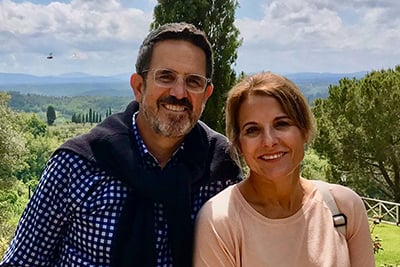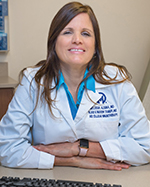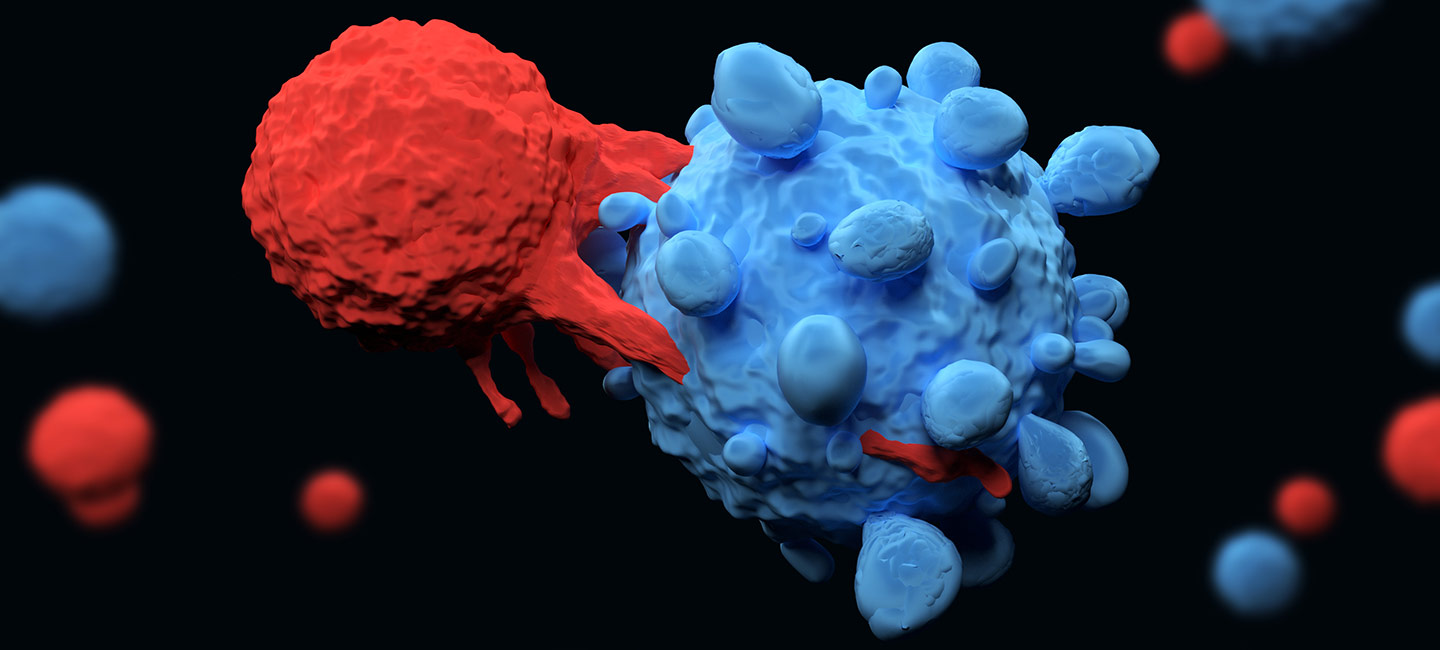FDA Approves CAR T to Help Patients with Relapsed Multiple Myeloma
Jamie Atkinson went on a clinical trial of CAR T therapy for patients with multiple myeloma last year because it was his last resort. “I had exhausted all my options,” he said.
Atkinson had not felt sick, so he was shocked when diagnosed with multiple myeloma, an aggressive blood disease, during a routine physical in 2017. “I was told my red and white cell counts were unusually low and was referred to a hematologist who broke the news,” Atkinson said. “With no initial symptoms, it is by God’s grace that I was diagnosed and treated.”

Jamie and Julie Atkinson
Atkinson admits to being angry at the diagnosis. “I was mad. I didn’t get emotional; I didn’t shed a tear. I was just really mad,” he said. “We raised 3 children; they are all terrific young adults and successful in what they do, and now my wife, Julie, and I were getting ready to start what I call that fourth quarter. We had our shoes on, laced up and ready to get on the court in the fourth quarter, and then I got that kind of news. I was just mad. I had worked so hard, and it was time for us to go do some things.”
As far as working, Atkinson, a partner in an asset management firm, commented, “Oh, I never stopped!” He was determined to take one day at a time and kept focused on recovery through four chemotherapy regimens and a full stem cell transplant. He relapsed again in the summer of 2019 and became progressively worse. “The stem cell transplant worked for about 10 months and I was in full remission for a time, and then the relapse came.”

A cancer of the bone marrow, multiple myeloma is an aggressive disease and can cause serious symptoms. “Patients can be quite sick because a hallmark of myeloma is bone damage, and patients can have significant bone pain, fractures or high calcium in the blood, along with other manifestations of the disease like anemia and renal failure,” said Dr. Melissa Alsina, head of the Multiple Myeloma Section in the Blood and Marrow Transplant and Cellular Immunotherapy Program at Moffitt Cancer Center. “There have been major advances in the treatments for myeloma, but unfortunately, it still remains an incurable disease, which can be deadly in patients with myeloma that have relapsed after multiple therapies.”
Atkinson is participating in a phase 2 trial, led by Alsina, that is part of an international trial to study a CAR T cell immunotherapy that targets certain B cells. So far, the trial has accrued 13 patients at Moffitt. The trial is designed to study the efficacy and safety of the CAR T therapy in multiple cohorts of patients. Atkinson is part of cohort 1, a group of patients who had relapsed or have refractory multiple myeloma after at least 3 previous anti-myeloma treatment regimens.
“The hope is that eventually this treatment will be approved to be used early on in the course of the disease and that further research can improve on the results that led to this product’s FDA approval,” said Alsina.
Atkinson said he never lost hope. “But at the same time, I came to terms and realized I’m not in control. Somebody else is. You come to accept it.” From the very beginning of his cancer journey and throughout Atkinson has been surprised and overwhelmed by the outpouring of people who reached out to him. “What was even more surprising was the number of people who have remained in contact over the last four years, letting me know that they continue to pray for me. I believe in the power of prayer...it is very real, and I have been unusually blessed.”
Both Atkinson and his wife, Julie, are foodies, travel buffs and avid sports fans. With the CAR T therapy last year coupled with COVID they have not been able to travel as much as in previous years, but they stay as busy as they can and are active in their church.
He also loves to play golf and got golf balls with the saying “do-over” put on them, “because that is what I got. God gave me a do-over several times when I went into remission and relapsed and I got another do-over with this CAR T. I haven’t felt this good in four years,” said Atkinson. “I have little things I deal with such as neuropathy in my feet and hands, a little back pain here and there once in a while, but it’s nothing! You could chalk it up to old age, right?” he laughs.
Through it all his Julie has been his anchor. “Not one time through all this has she ever complained; not once. She has this can-do attitude. She is the one who did all the research; asked all the hard questions and has been relentless, just tenacious,” said Atkinson. “My buddies say I outkicked my coverage.”
Would he participate in the CAR T trial again if he had the opportunity to do it over again? Absolutely. “Tomorrow morning I’d be there at 7 o’ clock and say, ‘Let’s go!’ ” Atkinson knows he would not have survived without that CAR T infusion as part of the clinical trial on Jan. 6, 2020. His thoughts about Alsina: “She saved my life.”


